- Home
- Tracy Cooper-Posey
Valor of Love (Scandalous Scions Book 2) Page 5
Valor of Love (Scandalous Scions Book 2) Read online
Page 5
“I will be alright in a moment. It passes, after a while.”
He gripped her arm, his fingers digging in. “What passes?” he demanded, his voice strained.
Lilly looked back at him, startled.
Immediately, he dropped his hand from her arm. The furrow between his brows smoothed out. “Forget I spoke, Lady Lillian,” he said stiffly. His tone was that of the butler she knew. “I must see what your parents require. Let me escort you to them.”
A queer type of disappointment tugged at her, when she saw the mask slide back into place.
Lilly turned and walked the length of the narrow section of the hall, that the massive stairs that swept up to the second floor made by taking up most of the width of the hall. Thomsett trod alongside her, saying nothing.
Mother held out her hand. “Come along, Lilly. We must have a family conversation while we’re all under one roof.”
“In the middle of a ball?” Lilly asked. Her voice was strained, yet no one seemed to notice.
“It happens so rarely these days, we took advantage of it. Elisa says we can use the morning room as there is no one there.”
“It’ll be freezing in there,” Cian said. “When I peeked in earlier, there was no light and no fire.”
“It will do long enough to talk in private,” Raymond said.
“I’ll fetch some candles to light the room,” Thomsett said.
“Paulson is already taking care of it,” Raymond told him. He stood back and waved everyone toward the arch through which the drawing room lay and beyond that, the morning room.
Elisa tugged Lilly along by her arm and Cian followed.
“You, too, Thomsett,” Raymond said flatly. “You need to hear this, too.”
Lilly turned and felt her mother’s grip slid from her arm.
Thomsett looked as though he was trying not to smile. “Very well, my Lord,” he said. “After you,” he added politely, waiting for Raymond to move.
* * * * *
Only the three boys of the Williams family were at the ball, for the three younger girls—Bridge, Marian and Annalies—were too young for balls, yet, even though the twins were wild to turn down their hems and attend their first ball.
Neil had rounded up Daniel and the pair were already waiting in the morning room, a glass each in their hands. Neil had his legs outstretched, a scowl on his face and his curly black hair in disarray from the vigor of the dancing. All three of them—Cian, Neil and Daniel—took up the couch.
Lilly almost sighed at the sight of them. All three had inherited her father’s dark Irish good looks. Cian had her mother’s high cheekbones, while Neil, the second oldest, was a near replica of Seth as Lilly remembered him from when she was a small child.
Daniel’s hair was smooth, unlike the other two, and his chin dimpled. At seventeen, he was already tall and would grow taller, possibly even outstripping Cian, who was already one of the tallest men in any room, except for Raymond. His eyes were bloodshot, which meant he had been drinking rather more than he should.
Raymond gripped Daniel’s shoulder and took the glass from his hands. “More dancing, less drinking,” he said quietly.
“Yes, sir,” Daniel said.
Lilly wondered how Raymond had won the three boys over. He had stepped into their lives, their big, older cousin and had become, almost overnight, the head of their family. All three of them listened to him and tended to follow his suggestions. Raymond never gave orders, yet they obeyed anyway. It had been a small miracle that still fascinated Lilly.
Thomsett closed the door to the room with a soft click.
Mother moved over to Raymond and took his hand. “This is unusual…”
“In this family?” Cian asked, smiling.
Everyone smiled or laughed.
Natasha was also smiling. “I have news. It’s a bit shocking. However, Raymond feels as I do that we should share it with you.”
Lilly caught her breath. “A baby!” she breathed.
Natasha looked startled.
Raymond laughed. “I told you we would not be able to hide it for long,” he said to Natasha and kissed her temple. “Yes, a baby, in the new year,” he said.
Neil sat up from his slouch. “Is it…well, dangerous, Mother? At your age? Forgive me for the question, but I would like to know.”
“It can be,” Natasha said. “The doctors say there should be little risk for me, though, as I have successfully born all seven of you without issue. One more is nothing. Although it is likely to be the last baby I can have.” Her cheeks were turning bright red, for this was far more intimate than any other family conversation.
All three boys were staring at their drinks or their shoes.
“You did ask,” Raymond told them.
“I’m reminded about being careful what one wishes for,” Cian rumbled in his baritone.
“That is not the only reason we asked you to step away from the ball,” Raymond said. “Cian, you turn twenty-one next year. That’s an age that every society in the world considers to be the start of adulthood. You have finished your degree at Cambridge. By your birthday you will have been running the estates yourself for nearly a year. It’s time for you to step fully into the role.”
Cian rested his long fingers against his temple. “I can’t imagine how I could step any more fully into the role than I already am.”
“You must take up residence at Innesford Hall as the head of the household,” Natasha said gently. “You cannot linger in our shadow forever.”
“As head? But where will you go?” Neil demanded. He looked at Raymond. “I thought you hated the manor in Sussex?”
“I dislike the place as much as Vaughn dislikes his. His comes with encumbrances, though. Mine does not. I shall tear the manor down and rebuild.”
Everyone stared at him.
Raymond went on. “By the time you turn twenty-one, Cian, the new manor will be ready. So will your home in Cornwall.”
Cian scowled. It was the same thundery expression as Neil’s. “You’ve already started the work,” he said. “Or you would not be so certain of the date when it will be done.”
“I have,” Raymond said calmly. He picked up Natasha’s hand. “The new manor is quite large. There will be plenty of room for anyone who wants to visit, or even stay for a while. We’re hoping, Cian, that you will find a reason to settle in Innesford and establish a life there.”
Lilly knew what they were not saying. They were expecting that in the near future, Cian would marry and have a son, who would secure the title for the family.
From the deepening scowl on his face, Cian also seemed to understand what they were not saying.
“We are doing this not just to give you your inheritance,” Natasha said. “We are also doing this for us.” She glanced up at Raymond. “Raymond and I would like to find a place that is neither mine, nor his, but ours. The new manor in Sussex will be ours.”
“Innesford is yours,” Raymond added, his gaze meeting Cian’s.
After a moment, Cian nodded.
Chapter Five
Lilly stayed inside Elisa’s house for the next ten days. She had never before measured how much time she spent outdoors. If she had been asked before those ten days, she would have said she spent little time there. She had responsibilities within and no engagements or commitments to draw her away from the house.
It was only when she deliberately chose to stay inside, as Thomsett had suggested in such an urgent way, that she realized how truly free she had been to step out the door and go wherever she chose. The glory of St. James was that everyone she knew and could possibly want to visit was within walking distance. Hyde Park was ten minutes away.
When she could not go to the park, when she was forced to stay indoors—even though it was her own decision—the borders of the house and everything in it chaffed and irritated her.
Sharla and Jenny had a full calendar, with dances and dinners, soirees and suppers and invitations for more and more appea
ring on the breakfast table next to their places every day. They had moved on from Lilly’s tutelage so she could not immerse herself in planning advanced lessons. The two little girls, Blanche and Emma, were distracted by the weather and the many enticing events and interests in London. Lilly did not like to burden them with extended lessons at this time of year.
In early June, Elisa announced that the Great Family would be attending the Trooping the Colors. The Queen’s secretary had invited Annalies and Rhys to sit in the Royal box—at the far back corner, to be certain, yet still within the compound at Horse Guards Parade where the Queen reviewed the troops.
Therefore, everyone else would go along to watch as well.
Lilly did not have to try hard to make an excuse. Perhaps her mother and Elisa had already spoken about him. Elisa merely nodded her understanding. “It will be a beautiful day. You will miss the sunshine and the spectacle, although there is always another year.”
Most of the staff were permitted to leave the house for the few hours the ceremony lasted, to find a place where they could watch. By the time everyone left, the big house in Grosvenor Square felt empty and silent.
Of course, her own family would have also left almost no one at home, as would the Davies household.
It was rare to be truly alone like this. Lilly looked out the window. Drifting in through the window with the soft afternoon breeze, she could hear the clop of the horses, the murmurs and calls of the spectators and the shouts of the sergeant majors lining up their units and calling out the beat of the march.
There were even drums that she could hear rolling in the distance, like a far summer storm.
She was as outside the affairs of people as it was possible to get.
This is what you wanted, she reminded herself.
Contrariwise, she could not stand the isolation. She wanted to be outside in the sun, clapping and cheering as the troops marched past, just as everyone else was.
It might be wise to stay indoors for the next little while.
Thomsett’s low voice and quick advice had thrummed in her mind for days. How much did he know? How much had he guessed? Of everyone in the family, he was the only one who had cautioned her, who had recognized her fear and had acknowledged it.
He was most likely out there, watching former comrades march by, just as everyone else was.
What if he was at home, though? Paulson had stayed behind. It seemed to be a butler’s lot to tend the home fires while even the most junior help got the afternoon off. Paulson, though, said it was his duty to remain behind and guard the house, that a butler did not desert his post for any simple whim.
Lilly suspected that Thomsett would be just as scrupulous in his duties as Paulson.
Without pausing to think it through, for she knew she would change her mind if she did, Lilly hurried over to the wardrobe and gathered her bonnet, her light lace gloves and her parasol and hurried downstairs.
She glanced in the drawing room as she passed the big archway. Paulson was not anywhere in sight. She didn’t want to seek him out and watch his face crinkle in disapproval at an unmarried miss tramping around St. James by herself, so she slipped out the door and let it shut quietly behind her.
On the broad steps down to the pavement, she paused to draw in a deep breath of fresh air and raise her parasol. Then she walked swiftly to Park Lane.
There were many more people on Park Lane, walking the length of it to reach the Horse Guards Parade. Lilly threaded her way through them, for they were strolling, while she needed to slough off ten days of inactivity and frustration. By the time she reached the Williams house, she was slightly breathless, although the exercise had revived her flagging spirits.
As she climbed the steps up to the big blue front door, thunder cracked, flat and loud, all around her. Lilly gave a little scream, that she smothered with her hand and looked around.
Then another volley sounded, rolling across the park.
Then another.
Lilly leaned against the wrought iron fence surrounding the tiny front yard of the house and laughed weakly at her own silliness.
It was the forty-one gun salute to the Queen, that was the highlight of the parade. The guns would fire another thirty-eight times.
Lilly turned the big round handle on the front of the door and stepped inside. She didn’t knock. She never knocked, for this was her home as much as Elisa’s was.
The first footman, Monroe, came hurrying from the back of the house while she stood untying her bonnet and removing her gloves. “Lady Lillian,” he said breathlessly, as the guns fired again.
“Then Thomsett went to the parade as well, Monroe?” she asked. “Somehow that doesn’t seem like him.”
“Begging yer pardon, m’lady, but Thomsett isn’t at the parade.”
“He’s not?” she asked. “Where is he? For he is patently not here. Is he in his workroom?”
Monroe pressed his lips together, looking uneasy. “He’s in his room. Upstairs.”
“Thank you, Monroe. That will be all.” She headed for the stairs.
“He asked that he not be disturbed, my lady.”
Lilly frowned. “That doesn’t make any sense at all. He’s the butler.”
“I’m sorry, my lady. I’m just passing along his instructions to the staff.”
“I am not a staff member,” she pointed out coldly.
“No, my lady. Beggin’ your pardon, my lady.” Monroe bowed and backed away.
Lilly climbed the stairs, weighing up whether her need for answers was more important than Thomsett’s need for privacy. Yet this afternoon was such a rare opportunity to speak to him without being constantly interrupted by the demands of his responsibilities. She could go for weeks before such a chance came along again. Maybe even months.
She climbed up the bare wooden stairs to the top floor. The last flight was narrow and the steps worn down, the hand rail smooth from generations of hands sliding along it.
As she climbed, the last round of the guns fired. Silence followed.
No dust or dirt lingered up here. No decoration, either. The narrow corridor was plain, with many doors, each with a number painted on it.
It was not completely unknown territory to her. Lilly remembered climbing here as a child. She had liked to play knuckle-jacks on the bare wooden floor, because the knuckles made a nice solid sound on the wood that they did not on the carpet downstairs. She remembered which room Corcoran had used and presumed that Thomsett was using that room, now.
Lilly knocked on the door with a firm rap and waited.
“Go away!”
The two words were spoken breathlessly. Unevenly.
Alarm speared her. “Is something wrong?” she called through the door. “Thomsett, are you well?” He had sounded as though he was in pain. That was why her heart pattered as it did.
His answer was a long time coming. “I’m fine. Go away. Please.”
His attempt at reassurance did not work. Her alarm rose. She put her hand on the handle. None of the doors locked. The staff had footlockers for their valuables, instead. Lilly could just walk in and nothing would stop her.
Only, should she?
She dithered at the door. What if Thomsett was in need of help? He’d told no one to disturb him. He might lie there in pain for hours and hours and no one would be the wiser.
Through the door, she heard him groan.
Lilly thrust down on the handle and opened the door. “What is wrong?” she demanded, stepping inside. She halted, two paces in, her hand still on the door handle, her questions dying on her lips.
Thomsett wasn’t lying down. He was sitting. And he was not sitting on the high, narrow bed where she had expected him to be. He was on the bare wood floor in the corner of the room.
He wore no shoes and no shirt. His undershirt sleeves were rolled up unevenly and the middle of the shirt was dark with sweat. His face gleamed with the same moisture. His hair, normally swept back neatly, was loose, the locks curling a
round his ears and temples.
He had pulled his knees up so they were nearly against his chest. His eyes were red-rimmed and dark with shadows, the lids nearly closed. Just a sliver of green showed beneath. “You…” He swallowed, his throat working. “Leave me alone.”
“Not if you are in pain,” she said, moving closer. Everything about his rigid body told her that he was hurting. She had been right to enter the room. “Let me help,” she said. “Tell me what I can do.”
Thomsett laughed. It was a harsh sound lacking any amusement. “No one can help me.” His tone was bitter. He reached out with his hand, groping blindly, for he did not open his eyes or move his head.
She saw he was reaching for a bottle of some sort of spirits, sitting uncapped on the floor near his hip. With a soft curse, he turned his head to locate it and snagged the neck. With a sigh, he brought the bottle to his lips and drank deeply.
Only half the bottle remained. Lilly recognized the name on the label, although she had only seen the liquor in decanters before and rarely. Rum was considered by most gentlemen to be a poor man’s liquor.
“But you don’t drink…”
He lowered the bottle and put it carelessly aside once more. His eyes opened a little wider. “Except for when I do.”
Lilly stood three feet away from him, afraid to come any closer. Yet the need to help, to find a way to lessen his pain, kept her pinned to the spot. Instead of moving closer, she lowered herself to a crouch, her skirt folding up around her. “Tell me what you need.”
“Silence. An absence of stupid questions.”
“You’re drunk. That is why you reject help.”
“I’m going to get a lot drunker, too.” His speech, she noted, had not deteriorated as his sobriety vanished. He still spoke precisely, in a manner typical of an upper class man.
“Why?” she demanded, struggling to understand what was happening to him.
“Why?” He sighed and reached for the bottle once more. “Because then I won’t hear them anymore.”
Her heart thudded. He had answered a question directly. “Hear who?” she breathed and waited to see if he would answer that, too.
“The guns,” he whispered.

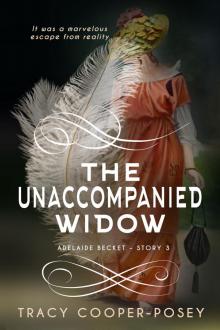 The Unaccompanied Widow
The Unaccompanied Widow Ashes of Pride
Ashes of Pride Inside Man
Inside Man Kiss Across Seas
Kiss Across Seas Kiss Across Chaos
Kiss Across Chaos But Now I See
But Now I See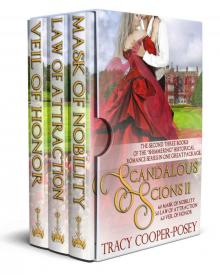 Scandalous Scions Two
Scandalous Scions Two Her Rebellious Prince (Scandalous Family--The Victorians Book 2)
Her Rebellious Prince (Scandalous Family--The Victorians Book 2) Year of Folly
Year of Folly Suns Eclipsed
Suns Eclipsed Quiver and Crave
Quiver and Crave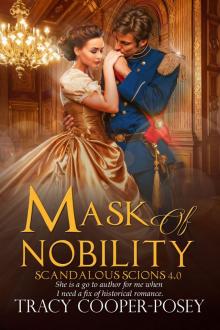 Mask of Nobility
Mask of Nobility The Second Trinity
The Second Trinity Kiss Across Tomorrow (Kiss Across Time Book 8)
Kiss Across Tomorrow (Kiss Across Time Book 8) Lost At Sea
Lost At Sea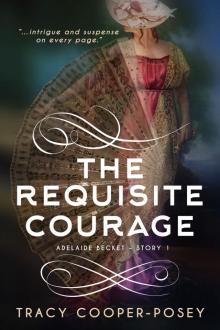 The Requisite Courage
The Requisite Courage Evangeliya
Evangeliya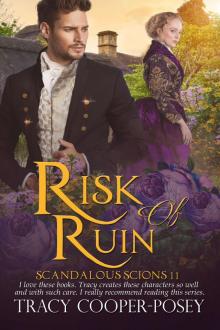 Risk of Ruin
Risk of Ruin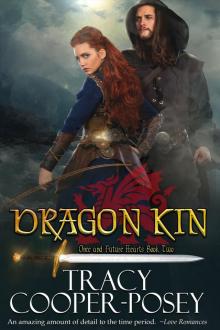 Dragon Kin
Dragon Kin War Duke of Britain
War Duke of Britain Scandalous Scions One
Scandalous Scions One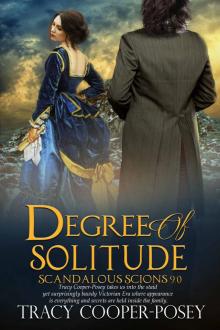 Degree of Solitude
Degree of Solitude Kiss Across Worlds (Kiss Across Time Book 7)
Kiss Across Worlds (Kiss Across Time Book 7)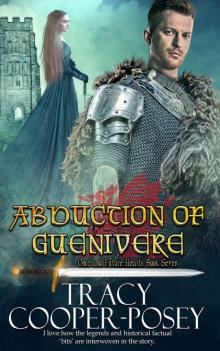 Abduction of Guenivere (Once and Future Hearts Book 7)
Abduction of Guenivere (Once and Future Hearts Book 7) Junkyard Heroes
Junkyard Heroes Flying Blind
Flying Blind Amor Meus
Amor Meus Heart Strike (Project Kobra Book 3)
Heart Strike (Project Kobra Book 3) High King of Britain
High King of Britain Arctic Ambush
Arctic Ambush Romani Armada (Beloved Bloody Time)
Romani Armada (Beloved Bloody Time)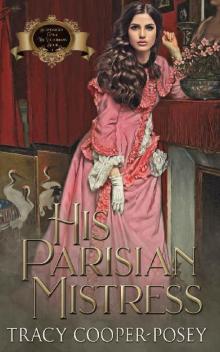 His Parisian Mistress (Scandalous Family--The Victorians Book 1)
His Parisian Mistress (Scandalous Family--The Victorians Book 1)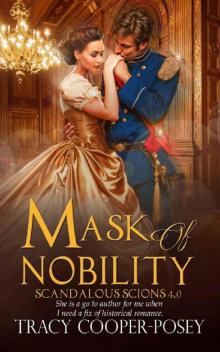 Mask of Nobility (Scandalous Scions Book 4)
Mask of Nobility (Scandalous Scions Book 4)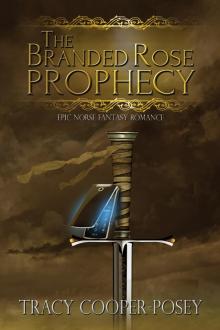 The Branded Rose Prophecy
The Branded Rose Prophecy Spartan Resistance
Spartan Resistance Byzantine Heartbreak (Beloved Bloody Time)
Byzantine Heartbreak (Beloved Bloody Time)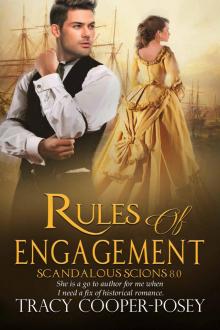 Rules of Engagement
Rules of Engagement Once and Future Hearts Box One
Once and Future Hearts Box One Soul of Sin (Scandalous Scions Book 2)
Soul of Sin (Scandalous Scions Book 2)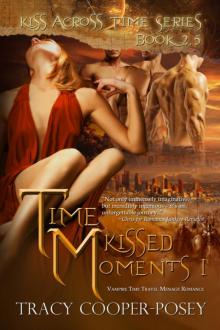 Time Kissed Moments 1
Time Kissed Moments 1 Blood Revealed
Blood Revealed Cat and Company
Cat and Company Byzantine Heartbreak
Byzantine Heartbreak Casualties of War
Casualties of War Carson's Night
Carson's Night Pendragon Rises
Pendragon Rises Terror Stash
Terror Stash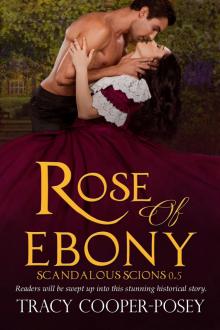 Rose of Ebony
Rose of Ebony Zoe's Blockade (Destiny's Trinities Book 5)
Zoe's Blockade (Destiny's Trinities Book 5) Blood Ascendant (Blood Stone Book 5)
Blood Ascendant (Blood Stone Book 5) Law of Attraction
Law of Attraction Varken Rise
Varken Rise Blood Unleashed (Blood Stone)
Blood Unleashed (Blood Stone) Prisoner of War
Prisoner of War Vistaria Has Fallen
Vistaria Has Fallen Kiss Across Deserts
Kiss Across Deserts Terra's Victory (Destiny's Trinities Book 7)
Terra's Victory (Destiny's Trinities Book 7) Unbearable
Unbearable Faring Soul - Science Fiction Romance
Faring Soul - Science Fiction Romance Carson's Night (The Stonebrood Saga)
Carson's Night (The Stonebrood Saga) Mia's Return
Mia's Return Kiss Across Swords (Kiss Across Time Series)
Kiss Across Swords (Kiss Across Time Series) Bannockburn Binding (Beloved Bloody Time)
Bannockburn Binding (Beloved Bloody Time) Beauty's Beasts
Beauty's Beasts Beth's Acceptance
Beth's Acceptance Kiss Across Kingdoms
Kiss Across Kingdoms Promissory Note
Promissory Note Blue Knight
Blue Knight Blood Stone
Blood Stone Season of Denial (Scandalous Scions Book 7)
Season of Denial (Scandalous Scions Book 7) Kiss Across Chains (Kiss Across Time Series)
Kiss Across Chains (Kiss Across Time Series) Yesterday's Legacy
Yesterday's Legacy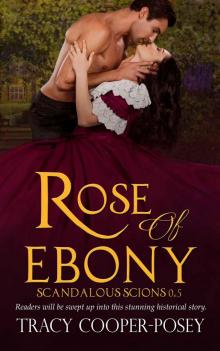 Rose of Ebony (Scandalous Scions Book 1)
Rose of Ebony (Scandalous Scions Book 1) Valor of Love (Scandalous Scions Book 2)
Valor of Love (Scandalous Scions Book 2) Hostage Crisis
Hostage Crisis Fatal Wild Child
Fatal Wild Child Octavia's War
Octavia's War Beth's Acceptance (Destiny's Trinities)
Beth's Acceptance (Destiny's Trinities) 5,001 - A Science Fiction Romance Short Story
5,001 - A Science Fiction Romance Short Story Freedom Fighters
Freedom Fighters Time and Tyra Again
Time and Tyra Again Harvest of Holidays
Harvest of Holidays Kiss Across Chains
Kiss Across Chains Sabrina's Clan
Sabrina's Clan Red Leopard (The Vistaria Affair Series)
Red Leopard (The Vistaria Affair Series)